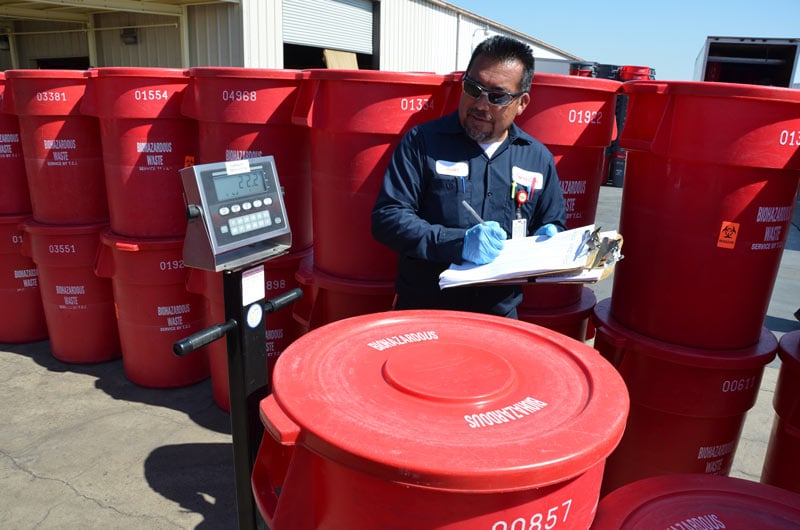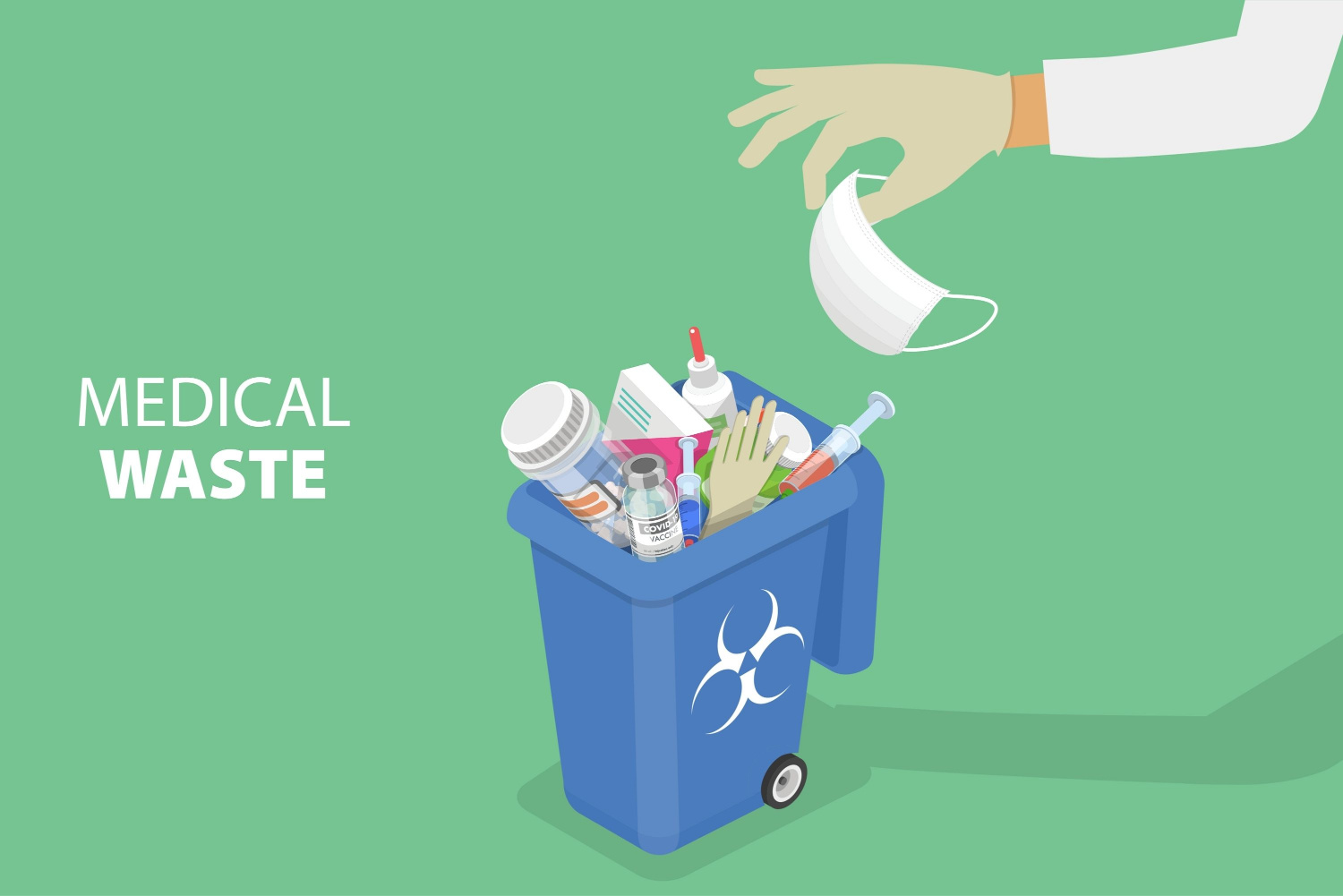Reliable Approaches of Medical Waste Disposal
Reliable methods of medical waste disposal are essential in maintaining public health and wellness and environmental safety. Clinical waste, consisting of sharps, pathological waste, and pharmaceutical waste, should be handled and disposed of appropriately to avoid the spread of infections and shield the environment. This calls for adherence to stringent policies and the execution of professional waste management methods.
Correct partition of medical waste, safe and secure and secure storage space, reliable therapy and disinfection methods, and environmentally-friendly disposal choices are essential components of an efficient medical waste disposal system. Professional waste monitoring services play an important role in ensuring compliance with regulations and decreasing the dangers connected with inappropriate disposal. By employing these techniques, medical care facilities can add to a more secure and cleaner environment while securing the wellness of the area.
Correct Segregation of Medical Waste
Appropriate segregation of medical waste is necessary for making certain the secure and effective disposal of these potentially harmful materials. Medical waste describes any type of waste generated throughout healthcare activities, such as hospitals, clinics, laboratories, and research study facilities. It consists of a large range of products, such as made use of needles, syringes, infected dressings, expired or unused medications, and organic products.
By segregating clinical waste, health care centers can reduce the danger of infections, injuries, and ecological contamination. The process entails categorizing waste into various kinds, such as sharps, transmittable waste, pharmaceutical waste, and non-hazardous waste. Each kind requires particular handling, product packaging, and disposal methods to stop direct exposure to medical care workers, waste administration employees, and the public.
To guarantee proper segregation, healthcare facilities ought to create clear guidelines and give sufficient training to personnel. This consists of enlightening workers on the different waste groups, proper product packaging techniques, and the usage of suitable containers - WasteX Medical Waste Disposal. Additionally, clear signage and color-coding systems can be applied to assist in the recognition and segregation of different waste kinds
Safe and Secure Storage of Medical Waste
Safe and safe and secure storage space of medical waste is crucial for preserving the stability and control of potentially unsafe materials. Proper storage space not just secures health care employees and the public from exposure to dangerous substances yet likewise avoids ecological contamination.
To ensure risk-free storage, clinical facilities must adhere to details guidelines. Waste should be stored in puncture-resistant and watertight containers that are identified appropriately - medical waste removal.
Correct segregation of clinical waste is additionally essential for secure storage. Various kinds of waste, such as sharps, transmittable products, and pharmaceutical waste, ought to be separated to stop cross-contamination. This partition can be achieved with using color-coded containers or containers.
Routine tracking and assessment of the storage space location are vital to identify any potential risks or violations. This consists of monitoring for signs of damage or degeneration in the containers, guaranteeing appropriate air flow, and checking temperature and moisture degrees.
Efficient Therapy and Sanitation Methods

One generally used treatment approach is autoclaving, which involves subjecting the waste to high-pressure vapor at temperatures over 121 degrees Celsius. One more technique is incineration, which entails melting the waste at high temperature levels.
Chemical sanitation is one more effective technique for dealing with clinical waste. This approach includes making use of anti-bacterials such as chlorine compounds, phenolic compounds, or hydrogen peroxide to eliminate or inactivate pathogens (WasteX Medical Waste Disposal). Chemical sanitation is usually used for fluid waste, such as laboratory examples or physical fluids
Recently, alternative therapy approaches such as microwave sanitation, irradiation, and organic therapy have likewise gotten attention. These approaches provide advantages such as decreased environmental effect and power usage compared to conventional methods.
Environmentally-friendly Disposal Options
In the world of medical waste disposal, taking into consideration environmentally-friendly options is critical. Healthcare centers produce a significant quantity of waste, including transmittable products, pharmaceuticals, and chemicals, which can posture severe risks to human health and the setting otherwise handled correctly. Luckily, there are numerous environmentally-friendly disposal alternatives offered that can help alleviate these threats.
One such option is recycling. Reusing clinical waste entails setting apart and refining particular products for reuse or repurposing. For instance, plastics, glass, and steel containers can be recycled, lowering the demand for brand-new materials and lessening the quantity of waste sent out to land fills. Furthermore, some healthcare centers have implemented reusing programs for sure medical tools or tools, further lowering waste generation.
This technique includes transforming medical waste into energy through procedures like incineration or anaerobic digestion. Anaerobic digestion, on Home Page the various other hand, breaks down natural waste in the lack of oxygen, generating biogas that can be used for electrical power or warm generation.

Advantages of Specialist Waste Management Services
One considerable benefit of expert waste administration services is the improved efficiency in handling and getting rid of of clinical waste. By utilizing specialist waste monitoring services, health care centers can make sure that all clinical waste is handled and disposed of appropriately, minimizing the danger of contamination and the spread of illness.
Professional waste monitoring services use skilled and experienced workers who are experienced regarding the guidelines and standards for clinical garbage disposal. They have accessibility to specific devices and devices that enable them to deal with various kinds of medical waste safely and successfully. These services also have well-established treatments and protocols in area to make certain that waste is segregated, packaged, transported, and disposed of in compliance with regional, state, and government policies.
Moreover, expert waste administration services can provide health care centers with comprehensive waste administration options. They can supply services such as waste collection, transportation, treatment, and disposal, tailored to the specific needs and needs of the facility. This eliminates the burden of taking care of waste inside, enabling healthcare personnel to concentrate on supplying quality individual care.
Verdict
In final thought, effective methods of clinical waste disposal entail correct partition, risk-free storage, therapy and sanitation, and environmentally-friendly disposal alternatives. These approaches make certain the risk-free handling and monitoring of clinical waste, avoiding the spread of infections and securing the atmosphere.
Clinical waste, including sharps, pathological waste, and pharmaceutical waste, should be managed and disposed of effectively to stop the spread of infections and secure the setting.Correct partition of medical waste, safe and safe and secure storage space, effective therapy and sanitation techniques, and environmentally-friendly disposal choices are key parts of a reliable medical waste disposal system. The procedure involves categorizing waste right into various kinds, such as sharps, infectious waste, pharmaceutical waste, and non-hazardous waste. By utilizing specialist waste management services, medical care centers can guarantee that all clinical waste is taken care of and disposed of properly, reducing the threat of contamination and the spread of diseases.
Specialist waste monitoring solutions employ skilled and qualified employees that are well-informed concerning the guidelines and standards for clinical waste disposal.